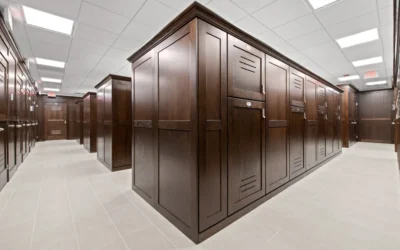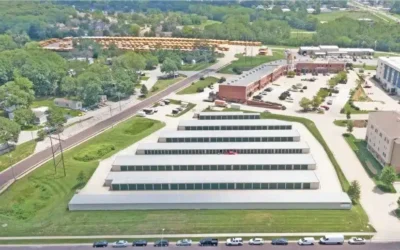The city of Providence, RI has a message for self-storage developers: stay away.
The Providence City Council last month approved an ordinance that effectively bans construction of new self-storage facilities throughout Rhode Island’s capital city, with supporters saying the city needs more housing and jobs, not new self-storage space.
“It’s not something people want to see,” said Councilor Miguel Sanchez, the original sponsor of the ordinance that would prohibit new construction of self-storage facilities and even conversions of abandoned industrial properties into self-storage. “Residents are the ones who brought up this (proposal). They don’t want to see additional self-storage.”
The industry reacts
The new ban, which was unanimously passed by the city council and approved by the mayor, even removes the “by right” use of self-storage within heavy commercial zones, prompting self-storage industry players to question whether the new law is really about promoting housing.
John Garrahy, a zoning lawyer who has previously represented self-storage clients in Providence, said no developer wants to develop housing within a designated industrial district – and few residents want to live in such areas.
“You can’t have housing in those areas anyway, so why are they banning self-storage there?” Garrahy said of the exclusion of self-storage from heavy commercial zones.
Not just housing
Sanchez countered that the need for more housing is only part of the reason for prohibiting the expansion of self-storage facilities in Providence. It’s also about jobs – and the lack of jobs at self-storage properties, many of which are mostly automated these days, he said.
It’s also about using scarce urban land for other purposes, such as desperately needed grocery stores in neighborhoods, Sanchez said.
A growing trend
Proponents and opponents of the ban agree on one thing: Providence, considered a secondary storage market with a population of nearly 190,000, has seen its share of new self-storage construction and conversions in recent years.
According to city and industry sources, there are about 17 self-storage facilities in Providence, two of which are facilities currently under construction. In all, there’s more than 6 million square feet of self-storage space in the city, up more than 1 million square feet in recent years, according to data from Radius Plus, an analytics firm.
Providence is just the latest community to ban new self-storage facilities, either permanently or temporarily. Earlier this year, Cape Coral, Florida imposed a nine-month moratorium on construction of new storage units, claiming the city has too many.
‘We pay taxes like everyone else’
Charlie Fritts, president of the Northeast Self-Storage Association, which represents self-storage owners and operators in Rhode Island, blasted the new storage ban in Providence, saying it’s ultimately consumers who are driving demand for more storage in the city. And it’s consumers who will suffer if the city’s storage supply doesn’t meet demand, he said.
Fritts agreed that self-storage facilities don’t employ a lot of people. But owners pay higher commercial-rate property taxes and their facilities don’t strain city resources, he said.
“Development is helpful to cities like Providence,” he said. “We pay taxes like everyone else but don’t use a lot of resources, like water and other utilities.”
Fritts said he wouldn’t be surprised if the new Providence ordinance sparks a lawsuit by a developer who may have recently purchased land to build a self-storage facility – and now can’t put storage on his or her property.
Fritts said he doesn’t know of any specific storage developer who might take legal action, but he said a lawsuit is “possible.”
‘We did our due diligence’
Sanchez said he and other city councilors respect self-storage owners – and the self-storage industry as a whole. “We get it: it’s a good business, it’s an almost indestructible business,” he said, noting self-storage’s reputation as a “recession resilient” industry.
He also said he has heard, and respects, the argument that market forces are driving demand for storage. But he said the council held hearings and heard plenty of testimony on the issue – and decided action needed to be taken.
The bottom line: Self-storage didn’t provide the type of community benefits people want in Providence, he said.
“We did our due diligence,” he said. “It’s not something we did overnight.”
But Garrahy, the zoning lawyer, said the city of Providence went too far with its extensive ban on new facilities.
“It seems to be a bit of an overkill,” he said.







